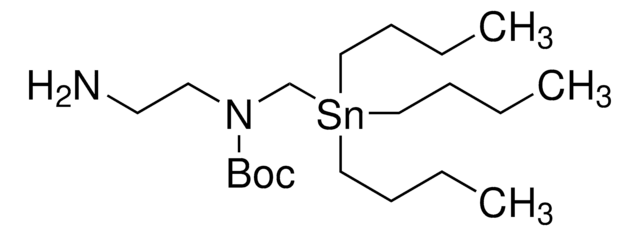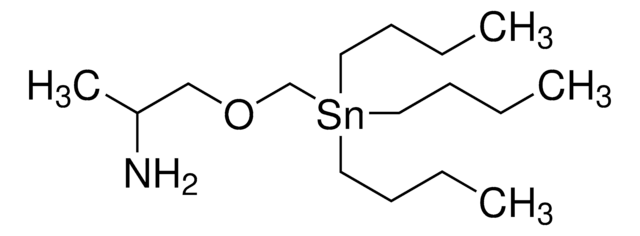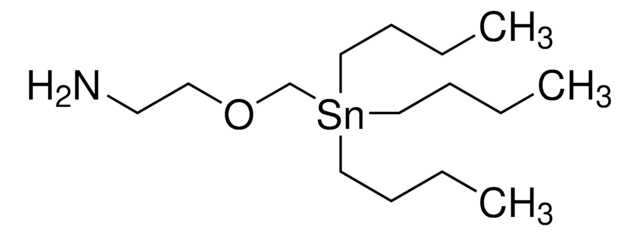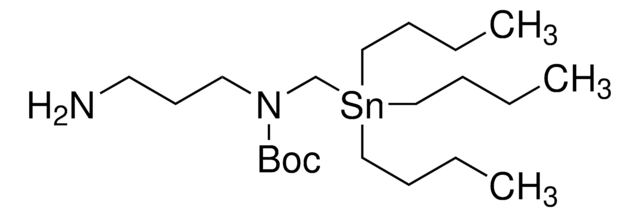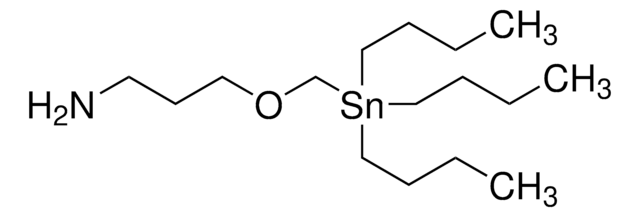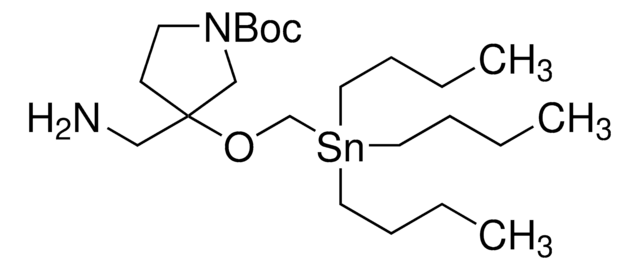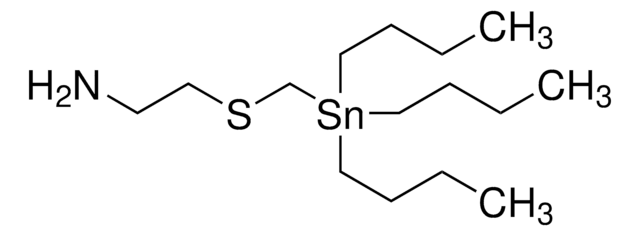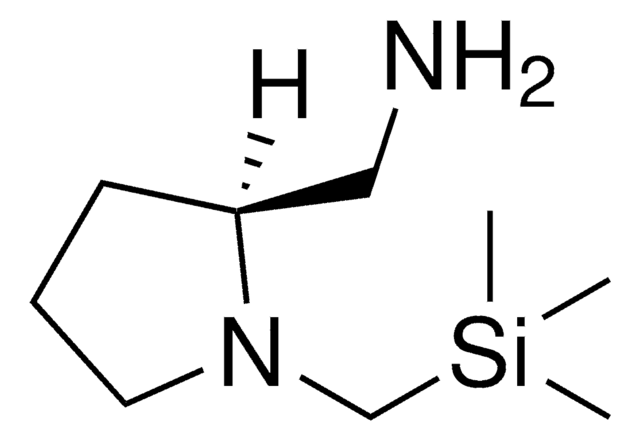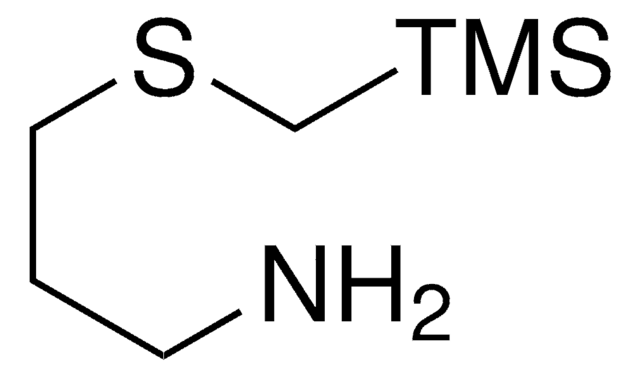798851
SnAP 2Me-M Reagent
Synonyme(s) :
2-[(Tributylstannyl)methoxy]-1-propanamine
About This Item
Produits recommandés
Description
Flash point (deg F): >230
Forme
liquid
Indice de réfraction
n/D 1.487
Densité
1.128 at 25 °C
Groupe fonctionnel
amine
ether
Température de stockage
−20°C
Chaîne SMILES
CCCC[Sn](CCCC)(COC(C)CN)CCCC
InChI
1S/C4H10NO.3C4H9.Sn/c1-4(3-5)6-2;3*1-3-4-2;/h4H,2-3,5H2,1H3;3*1,3-4H2,2H3;
Clé InChI
MALMPZOIHFDDCK-UHFFFAOYSA-N
Application
Automate your N-heterocycle formation with Synple Automated Synthesis Platform (SYNPLE-SC002)
Autres remarques
Professor product portal: Jeffrey Bode Research Group
SnAP Reagents for the Synthesis of Piperazines and Morpholines
SnAP reagents for the one-step synthesis of medium-ring saturated N-heterocycles from aldehydes
SnAP Reagents for a Cross-Coupling Approach to the One-Step Synthesis of Saturated N-Heterocycles
Produit(s) apparenté(s)
Mention d'avertissement
Danger
Mentions de danger
Conseils de prudence
Classification des risques
Acute Tox. 3 Oral - Acute Tox. 4 Dermal - Aquatic Acute 1 - Aquatic Chronic 1 - Eye Irrit. 2 - Repr. 1B - Skin Irrit. 2 - STOT RE 1
Code de la classe de stockage
6.1C - Combustible acute toxic Cat.3 / toxic compounds or compounds which causing chronic effects
Classe de danger pour l'eau (WGK)
WGK 3
Point d'éclair (°F)
Not applicable
Point d'éclair (°C)
Not applicable
Faites votre choix parmi les versions les plus récentes :
Certificats d'analyse (COA)
Vous ne trouvez pas la bonne version ?
Si vous avez besoin d'une version particulière, vous pouvez rechercher un certificat spécifique par le numéro de lot.
Déjà en possession de ce produit ?
Retrouvez la documentation relative aux produits que vous avez récemment achetés dans la Bibliothèque de documents.
Protocoles
Saturated N-heterocyclic building blocks or SnAP Reagents are of growing importance for the convenient synthesis of medium-ring saturated N-heterocycles, including bicyclic and spirocyclic structures. SnAP reagents are stable and readily available and can be coupled with widely available aromatic, heteroaromatic, aliphatic, and glyoxylic aldehydes.
Notre équipe de scientifiques dispose d'une expérience dans tous les secteurs de la recherche, notamment en sciences de la vie, science des matériaux, synthèse chimique, chromatographie, analyse et dans de nombreux autres domaines..
Contacter notre Service technique